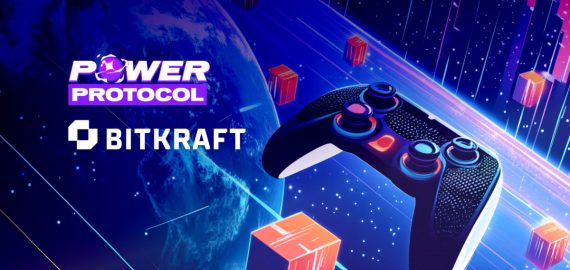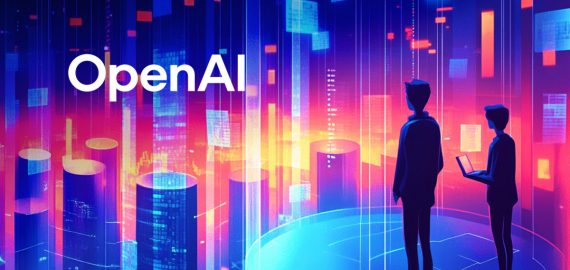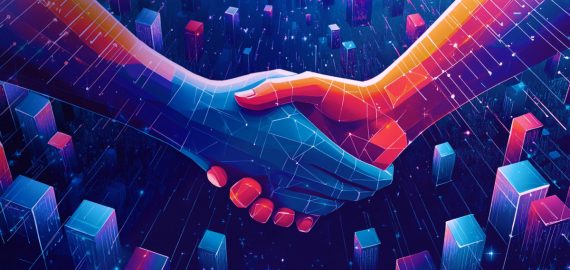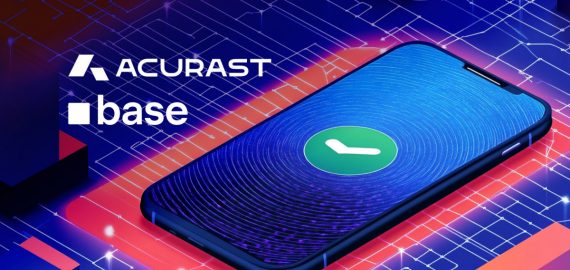The Top 10 Ecosystems Accelerating Innovation In Decentralized Web3 AI


In Brief
The top ten Web3 AI ecosystems are leveraging blockchain and AI to build scalable, secure, and autonomous decentralized applications across diverse industries.
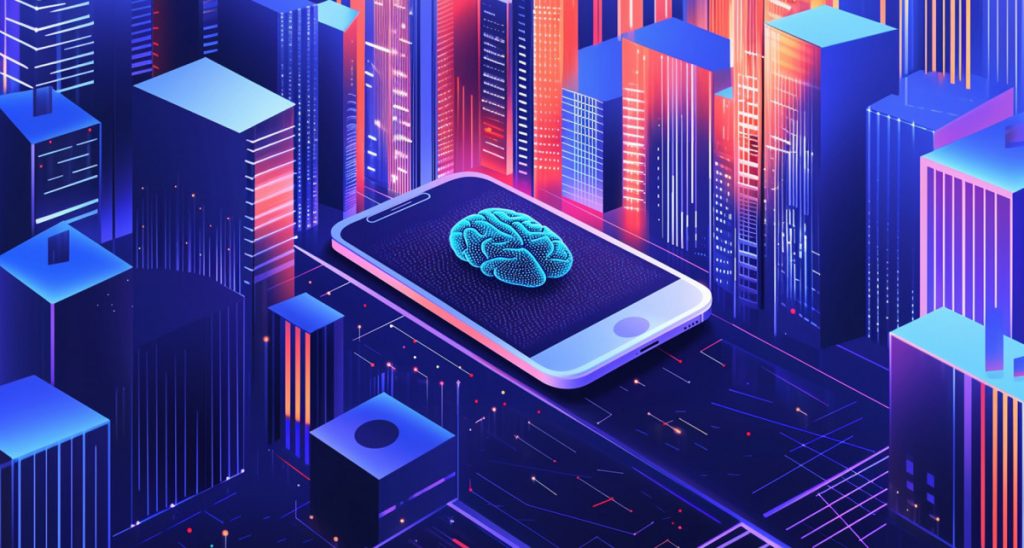
Blockchain provides a robust, transparent and secure platform for building decentralized applications, while artificial intelligence has the ability to adapt, learn and automate complex tasks. The fusion of these technologies has unleashed a wave of innovation, with intelligent dApps and AI agents that redefine how data is owned, monetized and processed.
Already, we see a number of ecosystems emerging to take the lead in this area, helping to advance scalability and interoperability, and most importantly, support the collaborative development of smarter, more autonomous Web3 applications.
Let’s take a look at the top ten ecosystems pioneering this new era of transformation.
The Biggest Ecosystems In Web3 AI
1: 0G Labs
0G Labs is building a modular blockchain specifically for AI applications that coordinates decentralized resources such as compute, data availability layers and storage, making them available to AI applications at low costs.
By having a dedicated blockchain for data-intensive AI applications, 0G ensures they won’t have to compete for precious block space with unrelated Web3 apps. This is essential for AI due to the vast amounts of data it consumes and the need to operate in real-time. 0G’s blockchain also ensures verifiably neutral training and execution, with data that’s free from copyright and privacy concerns.
Strengths: 0G’s dedicated blockchain infrastructure allows AI applications to scale and tap into lower cost decentralized compute resources for more sustainable operations. As one of the largest Layer-1 chains for AI, it has built up an expansive network of more than 100 partners, including cloud infrastructure giants Google Cloud and Alibaba Cloud, plus significant Web3 players like Arbitrum, Polygon, Singularity Finance, OKX and Fireblocks.
Use cases: dApps building on 0G span a wide gamut of use cases, with Atti.ai focused on decentralized robotic training, Lumoz offering a modular compute layer for AI computations, Pexu Labs building decentralized AI for creators and Capx AI focused on autonomous DeFi agents.
2: Fetch.ai
Fetch.ai combines AI and blockchain to support the development of intelligent economic agents that can automate tasks ranging from data analysis to decision-making, without any human supervision. These agents, also known as digital twins, can be used in a wide range of applications, including DeFi trading, managing logistics, booking hotels and more, learning from their experiences over time to become more effective.
Strengths: Fetch.ai’s main strength lies in machine-to-machine communication, which paves the way for AI agents to collaborate with one another to perform more complex, multistep tasks. It also offers one of the largest decentralized marketplaces for developers to find AI agents.
Use cases: Economic agents support numerous use cases, with one of the most obvious being DeFi, where they can engage in autonomous trading and optimize portfolio management for investors. Besides DeFi, Fetch.ai is also working to enable smarter cities, supporting autonomous public transportation systems and energy grid optimization. Another promising area is the gig economy, where it facilitates peer-to-peer interactions between service providers and their clients.
3: SingularityNET
The SingularityNET project aims to build the world’s largest marketplace for AI-powered services. Developers can create and deploy AI algorithms for natural language processing, image analysis, data predictions and other skills. SingularityNET provides them with a way to monetize their AI models, while others can access them easily to build comprehensive autonomous applications.
Strengths: The sheer size of SingularityNET’s marketplace makes it stand out as one of the top Web3 AI ecosystems, with hundreds of different AI services available. It provides extensive tools for service management, with developers able to analyze how their models are used and set prices accordingly. It operates a token-based economy centred on the AGIX cryptocurrency, which is interoperable across blockchains, enhancing its usefulness.
Use cases: SingularityNET’s marketplace spans the entire AI industry, with models and services for industries such as finance, healthcare, supply chains, social media, content creation, video generation, compliance and more.
4: Ocean Protocol
A decentralized data exchange platform, Ocean Protocol is all about securely sharing data for AI training. It has built a marketplace where data owners can list their datasets, control access and collaborate on creating new data markets. Transactions are powered by the OCEAN token, enabling low-cost and private data exchanges.
Strengths: Ocean Protocol enables the tokenization of data assets that can be traded on the blockchain as “data tokens” to simplify how information is bought and sold. It also supports “compute-to-data”, which is a novel feature that makes it possible for AI algorithms to run on datasets without moving it to another platform. This helps to guarantee privacy and security for data owners, protecting datasets against unauthorized access.
Use cases: With Ocean Protocol, businesses and individuals alike have a secure way to monetize their data, earning token-based rewards whenever their assets are used by AI algorithms. The platform supports high volumes of information for the most data-intensive AI applications, as well as collaboration between data providers for research purposes.
5: Bittensor
The open-source Bittensor protocol provides tools for creating and sharing AI models, operating as a peer-to-peer network. Developers can train, deploy and then trade foundational models on a platform that’s focused on democratizing AI. By enabling multiple developers and data providers to contribute to the development of AI models, it provides compelling alternatives to those built by large corporations such as OpenAI and Google.
Strengths: Bittensor’s decentralized network supports a collaborative environment, where individuals can share their knowledge and make use of community-owned resources, including development tools and compute. The network is highly incentivized, with miners processing computations and data providers sharing datasets in return for TAO tokens. Bittensor operates a unique consensus mechanism known as “proof-of-intelligence”, rewarding nodes for the quality of their outputs, rather than the volume of their work.
Use cases: Bittensor’s network consists of multiple subnets for collaborative and global AI learning, with each one operating independently but connected through the main Subtensor blockchain. These subnets cater to many AI services, including code generation, summarization, content filtering and medical diagnostics.
6: Gensyn
Gensyn has built an AI-focused blockchain network that’s designed to provide developers with access to affordable and specialized computing resources for machine learning. Developers can connect to various kinds of compute clusters, including Nvidia GPUs, to train models based on their speed, performance and cost considerations.
Strengths: The major advantage of Gensyn is the variety and low cost of its compute resources. It offers access to idle compute from network participants, including small data centers, PCs, laptops and even smartphones. It’s a peer-to-peer network that enables direct connections between compute providers and developers, with a token-based economy that makes resources available at lower costs than traditional cloud infrastructure providers. Another advantage of Gensyn’s network is its scalability, with infrastructure resources available from across the globe.
Use cases: Gensyn’s goal is to democratize access to AI compute, ensuring that even the smallest startups and individual developers can access the resources they need to train sophisticated AI models. It offers a more inclusive environment for building AI that’s open to everyone.
7: NEAR Protocol
Unlike the projects listed above, NEAR Protocol is a more expansive network that caters to AI alongside many other use cases, including DeFi and Web3 social and gaming applications. Its shared, proof-of-stake blockchain platform supports the development of scalable dApps and sophisticated smart contracts, and features dozens of integrations that enable the creation of intelligent, AI applications.
Strengths: NEAR Protocol appeals to AI developers thanks to its sharding technology, which divides the network into small segments that can process transactions in parallel, turbocharging throughput. This means NEAR supports blazing-fast transactions, with finality achieved in less than 600 milliseconds, making it ideal for AI dApps that need to process thousands of transactions. It has also developed the Bitte Protocol, which is a framework for building no-code smart contracts, using natural language.
Use cases: With NEAR Protocol, developers can build almost any kind of AI application, including those that rely on autonomous AI agents capable of making decisions without human input, paving the way for automated DeFi, trading and portfolio rebalancing.
8: Polygon Network
As a leading Ethereum Layer-2 scaling solution, Polygon Network is ideally suited for the development of highly-scalable AI applications. It dramatically enhances transaction speeds and reduces their costs by processing them on a separate blockchain before finalizing them on the Ethereum network at regular intervals. In this way, it can support the creation of intelligent applications and agents in the world’s biggest DeFi ecosystem.
Strengths: Polygon’s strengths are its network infrastructure, which boasts extremely high throughput and miniscule gas fees, which are a requisite for AI apps that need to scale to support thousands of transactions per minute. It’s fully compatible with Ethereum and other EVM chains, and has built up one of the most extensive ecosystems of any L2, which developers can tap into to create more sophisticated AI apps with ease.
Use cases: Developers have already built dozens of AI-powered apps on Polygon, with examples being NFT projects, on-chain analytics services and automated trading bots that can execute predefined strategies while the user sleeps.
9: Akash Network
A decentralized cloud infrastructure platform, Akash Network helps to connect developers needing to access low-cost compute resources with anyone who is looking to rent out their underutilized or idle hardware. For instance, someone with a laptop fitted with a powerful Nvidia graphics card can rent this hardware when they’re not playing games, allowing them to earn a passive income.
Strengths: With Akash’s decentralized marketplace, users can list their idle computing resources anytime they’re available for others to use, and it will automatically delist them when they’re not available. Developers and organizations can submit a request specifying the compute resources they require for any duration, and Akash’s automated bidding system will connect them with the most competitively-priced hardware available that meets their requirements.
Use cases: Akash Network is all about helping AI developers through cost efficiency, and it offers bespoke AI training environments that provide significant savings of up to 85% when compared to traditional cloud infrastructure providers, such as AWS and Microsoft Azure. It dramatically lowers the barrier to entry for building AI.
10: ChainML
ChainML is a research lab that aims to create a foundation for decentralized AI agents, providing low-cost access to essential resources and development tools via its blockchain-based framework. By integrating AI with blockchain, it believes it can make agentic AI more accessible while offering stronger security.
Strengths: According to ChainML, the key advantage of its blockchain platform is that it offers a secure, transparent and affordable environment for anyone to build and deploy AI agents with verifiable outputs. It collaborates with partners to provide simple tools for creating smart contracts that automate financial transactions and micropayments.
Use cases: ChainML is the creator of Council Analytics, which is a generative AI conversational analytics platform that makes it simpler to query data, using only natural language commands. Developers are using ChainML to build AI agents that automate data analytics workloads in various industries, including finance, healthcare, drug discovery, supply chain logistics and more.
Final Thoughts
The marriage of blockchain with AI is an exciting development for both industries, potentially leading the way to more autonomous and intelligent Web3 projects that will transform the way people interact with money and digital assets.
By building AI on decentralized blockchain infrastructure, developers are opening the door to more efficient applications with heightened privacy and security that have full autonomy to act on behalf of human users. This will lead to new possibilities around decentralized prediction markets, AI-powered trading strategies and automated wealth building. Moreover, with its tokenized economics, blockchain-based AI becomes much more affordable, expanding its benefits to many more users.
Disclaimer
In line with the Trust Project guidelines, please note that the information provided on this page is not intended to be and should not be interpreted as legal, tax, investment, financial, or any other form of advice. It is important to only invest what you can afford to lose and to seek independent financial advice if you have any doubts. For further information, we suggest referring to the terms and conditions as well as the help and support pages provided by the issuer or advertiser. MetaversePost is committed to accurate, unbiased reporting, but market conditions are subject to change without notice.
About The Author
Alisa, a dedicated journalist at the MPost, specializes in cryptocurrency, zero-knowledge proofs, investments, and the expansive realm of Web3. With a keen eye for emerging trends and technologies, she delivers comprehensive coverage to inform and engage readers in the ever-evolving landscape of digital finance.
More articles

Alisa, a dedicated journalist at the MPost, specializes in cryptocurrency, zero-knowledge proofs, investments, and the expansive realm of Web3. With a keen eye for emerging trends and technologies, she delivers comprehensive coverage to inform and engage readers in the ever-evolving landscape of digital finance.
















































